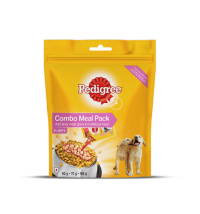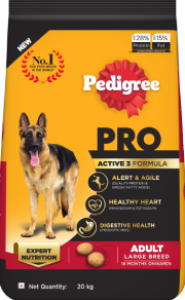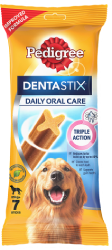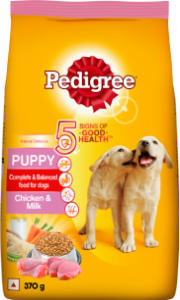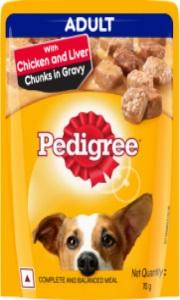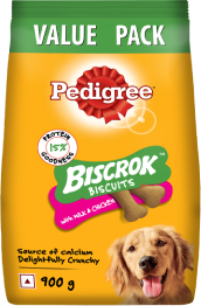
In this section
How to Care For Your Lactating Dog and Her Pups
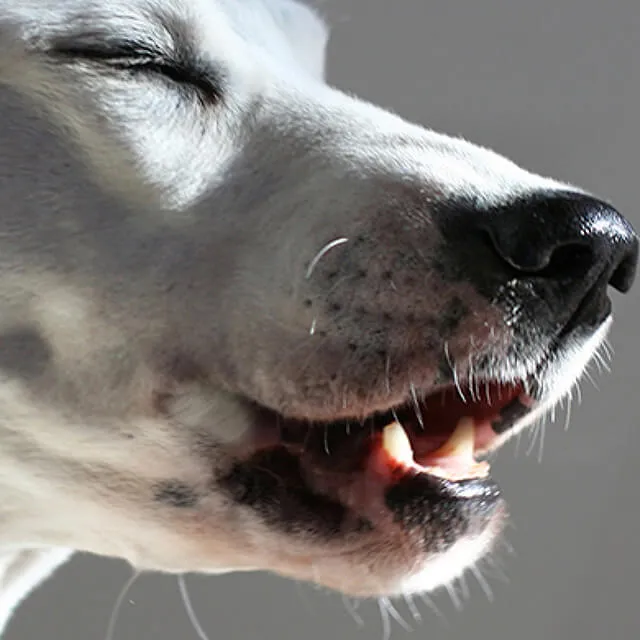
share:
"While it is incredible to welcome a new litter of pups into the world, caring for them and the mother can be quite challenging. The mother requires optimal care, careful observation, regular check-ups and quality nutrition—right from the moment the pregnancy is detected to several weeks after she has given birth. If you are preparing for whelping at home, we recommend staying in constant contact with your veterinarian to monitor and assist with the procedure. And once every little puppy has made their way into the world, it is important that you provide them and their mother with the best post-natal care possible. Given below are a few tips that will help you do just that…
Keep the mum clean and well-groomed
It is normal for your dog to leak some amount of discharge for up to several weeks after birth, and even more if she has had a C-section. It is also normal for it to appear green, black, brown or red in colour. However, do not bathe your dog immediately after she has given birth to avoid the possibility of her pups coming in contact with soap residue. Instead, use a warm, damp cloth and clean her gently. If she has long fur, give her a sanitary cut around her tail, hind legs and mammary glands and make sure to keep these areas clean. Consult your veterinarian immediately if you notice the discharge is thick, pale or grey in colour and emits an odour.
Monitor the mum's and the pups' health
Within the first 24 to 48 hours, it is normal for the mum to experience a rise in temperature wherein it is a degree or two higher than the usual 101 to 102.5 degrees. Check her teats on a regular basis. Redness, swelling, inflammation and discolouration are all symptoms to look out for. Her milk should appear white and regular in consistency. If you notice excessive panting, muscle tremors, high temperatures, whining, dilated pupils, appetite loss and lethargy, speak to your veterinarian immediately. When it comes to the puppies, make sure they are breathing normally, nursing without assistance and gaining weight consistently. Keep an eye out for nasal or eye discharge, wheezing, issues with nursing or breathing, pale gums, and difficulties with passing stools.
Supply fresh drinking water
After giving birth, your dog will be very dehydrated and exhausted. She will need plenty of water to heal and begin producing milk for her puppies. As a result, when she is breastfeeding, make sure she has access to fresh water at all times. Please note that young puppies meet their hydration requirements with their mother’s milk. They will need a supply of fresh water when they are weaned at 6-8 weeks old, as they begin eating solid food at 3-4 weeks of age.
Put them on a specialised diet
It is very important for pregnant and lactating dogs to receive proper nutrition. The same goes for the puppies when they begin to eat solid food. Most often, home-cooked meals, no matter how carefully prepared, lack the necessary nutrients required for energy, digestive health, development and growth. Therefore, in this delicate phase, it is important to nourish the mum and her pups with good quality dog food that has been specially formulated for them, like the Pedigree Mother & Babydog Starter. Mother & Babydog Starter is a complete, balanced and wholesome meal for pregnant and lactating mothers as well as weaning puppies aged 3 to 12 weeks old. Made with high-quality ingredients like chicken, rice and milk, it contains all the essential nutrients needed by both the lactating mother as well as the pup. It is ideal for mums as it is more energy-dense than regular dog food. This gives them the energy they need to feed their pups. It also contains optimal amounts of fiber to ensure digestive health. Puppies at this stage have very delicate immune systems, which is why this dog food contains Vitamin E to support their natural defenses. It even contains protein to support their growth potential and DHA to support brain development.
Tip: Break down your pregnant dog’s meals into smaller portions throughout the day as she might feel some discomfort with a large, heavy meal. Make sure to consult your veterinarian for recommended quantities.
Manage their behaviour
In the beginning, your dog will be very protective of her puppies to the extent that she may not want to leave their side. She might even showcase bouts of protective aggression. While this is normal, you might have to persuade her to take short 5-10 minute breaks so she can relieve herself. However, if she is extremely hesitant, it may be best to wait a little longer. As for the puppies, expect them to just feed and sleep for the first two weeks. They only start functioning by the third week when they begin to see, hear and gain a little mobility. At this stage, you can let them explore while introducing them to new sights, sounds and textures.
While your pooch is capable of taking care of her pups from the moment they are born, you will need to step in to make sure she is healthy, nourished and cared for. With our expert-approved tips and routine consultations with your veterinarian, we’re sure you will be well-equipped to handle post-natal care for your dog and her newborn puppies.
Note: In case you do not want your dog to breed again, consider spaying her."
Review this article:




